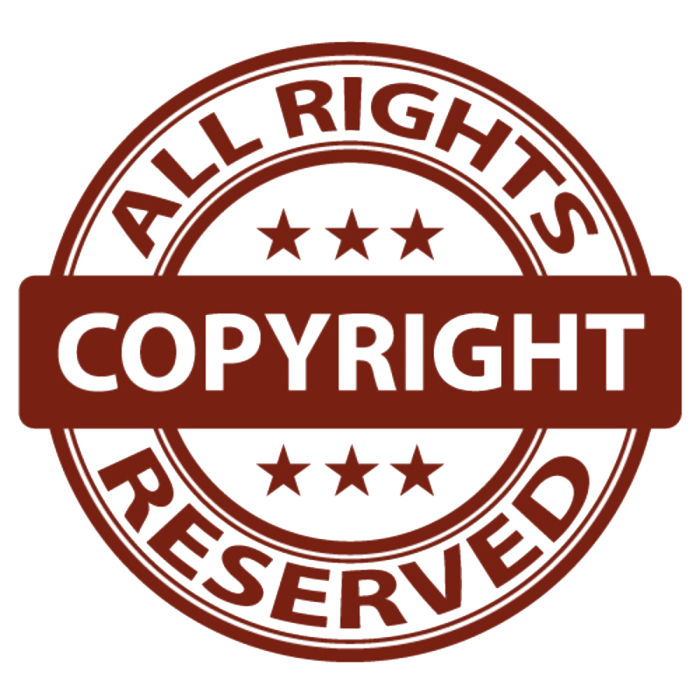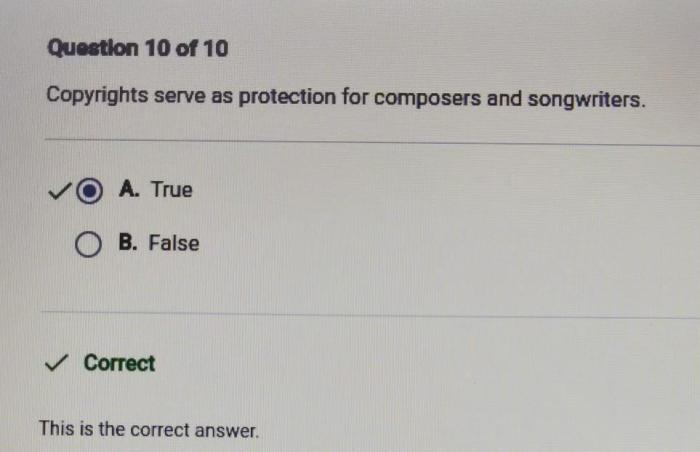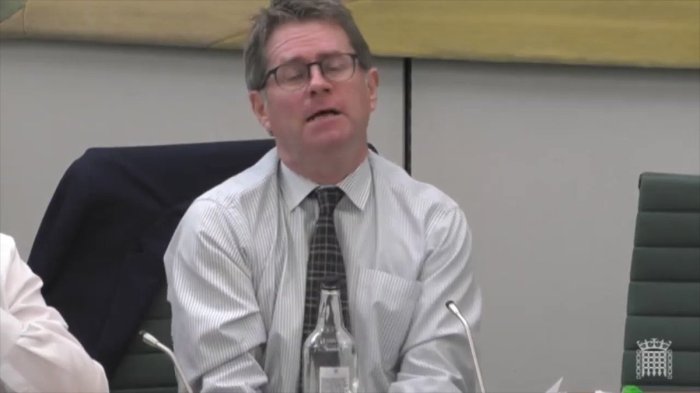Copyrights serve as protection for composers and songwriters, safeguarding their creative works from unauthorized use and ensuring fair compensation for their efforts. This comprehensive guide explores the multifaceted aspects of copyright protection, its economic benefits, enforcement mechanisms, exceptions, international implications, technological impact, and future prospects, providing valuable insights for creators and industry professionals alike.
Copyright Protections for Composers and Songwriters
Copyright protection safeguards the intellectual property rights of composers and songwriters, enabling them to control the use and distribution of their musical works. It grants exclusive rights, including the right to reproduce, distribute, adapt, perform, and display their compositions.
Copyright protection helps prevent unauthorized use of musical works, such as unauthorized reproduction, distribution, or performance. This ensures that composers and songwriters receive fair compensation for their creative efforts and can continue to create new works.
Economic Benefits of Copyright

Copyright provides significant economic benefits to composers and songwriters. Royalties from sales, licensing fees for use in films, television, and advertising, and revenue from live performances contribute to their financial well-being.
Studies have shown that strong copyright protection leads to increased investment in the music industry. This investment supports the creation of new music, fosters innovation, and creates jobs for musicians, producers, and other industry professionals.
Enforcement of Copyright Laws: Copyrights Serve As Protection For Composers And Songwriters
Composers and songwriters have various legal mechanisms to enforce their copyright protections. Lawsuits can be filed against infringers, and cease-and-desist letters can be issued to demand the停止侵权. DMCA takedown notices can be submitted to online platforms to remove infringing content.
Successful copyright enforcement cases have resulted in significant damages and injunctions against infringers. These cases set precedents and deter future infringements, ensuring that composers and songwriters’ rights are respected.
Exceptions and Limitations to Copyright
Copyright protection is subject to certain exceptions and limitations. Fair use allows limited use of copyrighted works for purposes such as criticism, commentary, and research. Public domain works are not protected by copyright and can be freely used by the public.
Compulsory licenses allow for the use of copyrighted works under certain conditions, such as for non-profit educational purposes. These exceptions balance the rights of composers and songwriters with the public’s interest in accessing and using creative works.
International Copyright Protection

International agreements and treaties, such as the Berne Convention and the Universal Copyright Convention, provide copyright protection for composers and songwriters across borders. These agreements ensure that their works are protected in other countries, facilitating international collaboration and distribution.
However, enforcing copyright protections in a globalized music industry can be challenging due to differing copyright laws and enforcement practices in different jurisdictions.
Impact of Technology on Copyright

Technological advancements have significantly impacted copyright protection. The internet and digital distribution have made it easier to share and access music, but they have also created new challenges for enforcing copyright.
Digital rights management (DRM) technologies have been developed to protect copyrighted works online. However, these technologies can also limit fair use and create barriers to access for legitimate users.
Future of Copyright Protection

The future of copyright protection is uncertain. New technologies and changing consumption patterns are challenging traditional copyright models. Composers and songwriters need to adapt to these changes while advocating for policies that protect their rights and foster creativity.
Potential changes to copyright laws, such as the implementation of a fair use exception for online platforms, could impact the way copyrighted works are used and shared in the digital age.
General Inquiries
What are the key benefits of copyright protection for composers and songwriters?
Copyright protection provides composers and songwriters with exclusive rights to their works, enabling them to control their distribution, reproduction, and public performance. This allows them to generate income through royalties, licensing fees, and sales, ensuring fair compensation for their creativity.
How can composers and songwriters enforce their copyright protections?
Composers and songwriters can enforce their copyright protections through various legal mechanisms, including lawsuits, cease-and-desist letters, and DMCA takedown notices. By taking legal action against unauthorized use of their works, they can seek remedies such as injunctions, damages, and attorney’s fees.
What are the exceptions and limitations to copyright protection?
Copyright protection is subject to certain exceptions and limitations, such as fair use, public domain, and compulsory licenses. Fair use allows limited use of copyrighted works for purposes such as criticism, commentary, and education without infringing on the copyright holder’s exclusive rights.
Public domain refers to works whose copyright has expired or has been forfeited, making them freely available for public use.